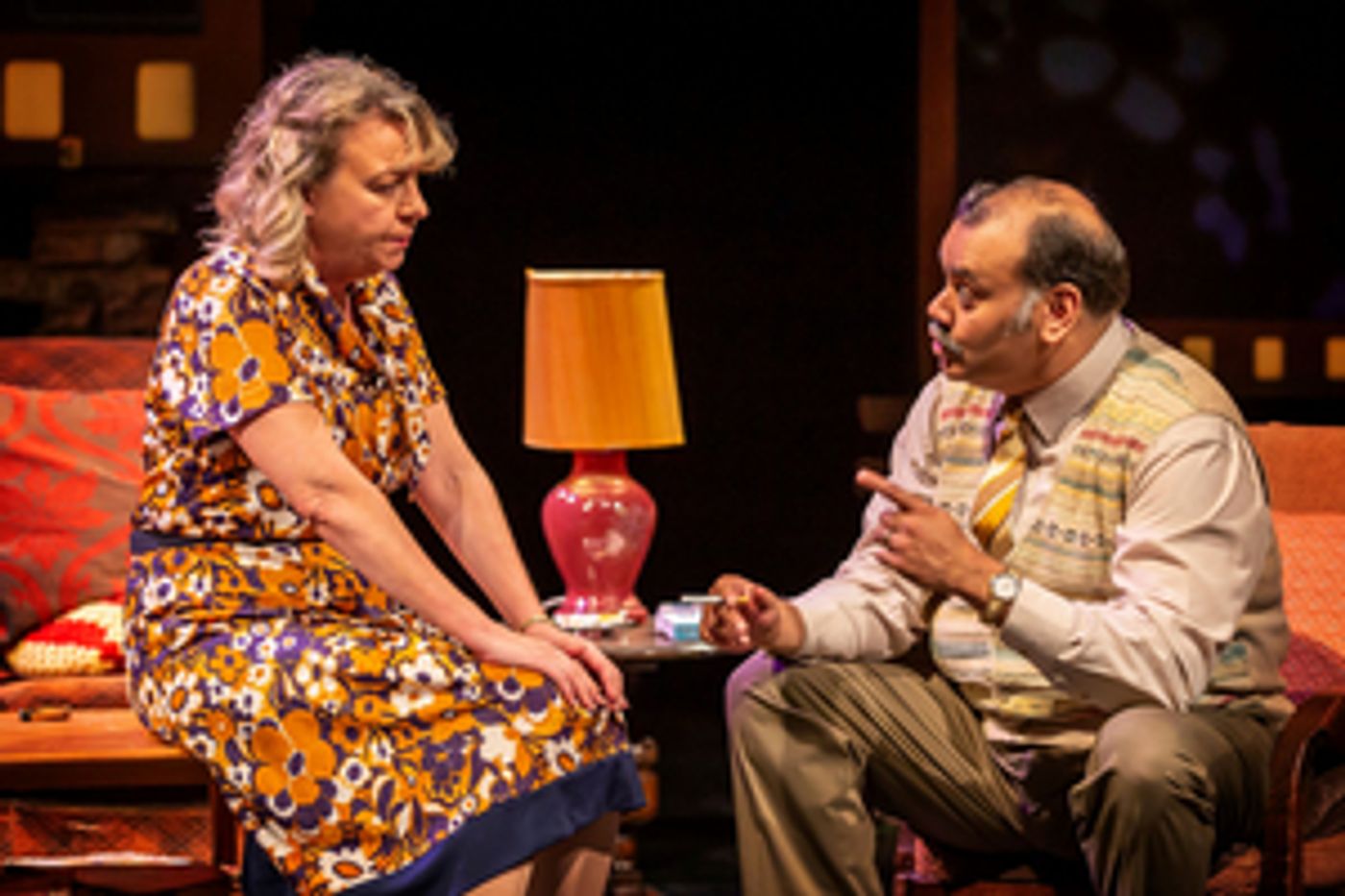Review: EAST IS EAST, National Theatre
The modern classic celebrates 25 years

![]() Ayub Khan Din's much loved modern classic East is East premiered at the Birmingham Rep back in 1996 before being adapted for the screen a few years later. In celebration of its 25th year the play arrives at The National Theatre for a limited run. Thanks to cleverly considered, often sensitive direction from Iqbal Khan and a strong and cohesive cast, the revival shows little signs of its age and instead feels as fresh, relevant, and engaging as ever.
Ayub Khan Din's much loved modern classic East is East premiered at the Birmingham Rep back in 1996 before being adapted for the screen a few years later. In celebration of its 25th year the play arrives at The National Theatre for a limited run. Thanks to cleverly considered, often sensitive direction from Iqbal Khan and a strong and cohesive cast, the revival shows little signs of its age and instead feels as fresh, relevant, and engaging as ever.
Salford, 1971 and chip shop owner George Khan is wrestling with the fact that his children identify as English, failing to fully embrace the Pakistani values he expects them to uphold. George is conflicted, having veered away from tradition by marrying Ella, who is white British. His instigation of strict rules results in a house compressed with confusion and teeming with tension. While Ella attempts to keep the peace, any feelings of resentment towards George are only exacerbated when the controlling patriarch arranges for two of his sons to marry.
One of the most endearing aspects that has contributed to the play's lasting impact is its blending of humour with the more hard-hitting elements. The scenes of domestic abuse are not easy to digest but the direction provides some breathing space which allows the actors to delve deeply into their characters. This permits us to understand their motivations and behaviours, even if we might not agree with them.
Eruptions of violence are often soon followed by character-driven comedy, which flows organically. It's testament to Khan Din's rich and razor-sharp writing, which continues to shock and delight a quarter of a century later.
The theme of national identity is very pertinent following Brexit, which adds another layer and affords the play a timely feel, despite its '70s setting. There is also an obvious emphasis on strong women with Ella being the glue that binds the family together. She takes no nonsense but is clearly plagued with having to be in the middle of a constant tug-of-war between her husband and her children.
Sophie Stanton excels as the matriarch, embodying a maternal warmth. The more tender moments between her and George show us why they first fell for one another, which makes her fear and vulnerabilities during his violent outbursts even more challenging to watch.
Stanton is well supported by Rachel Lumberg, who extracts as much comedy as possible out of the loveable Auntie Annie. Her regular visits offer some respite from the repression that permeates throughout the family home and the actor is gifted great one liners, exhibiting excellent comic timing in her delivery.
Amy-Leigh Hickman plays only daughter Meenah with a fiery zest, having clearly inherited her mother's refusal to be walked over by the men of the house. Noah Manzoor also impresses as youngest sibling Sajit, who conceals himself from the world under the hood of his parka. With a nervous twitch, the actor captures his character's confusion and feelings of alienation and unacceptance while also injecting a great deal of comedy to proceedings.
The rest of the cast all deliver with Irvine Iqbal inviting many laughs as Mr Shah during the crowd-pleasing climax. But the night belongs to Tony Jayawardena, who masterfully prevents George from ever veering too close to clownish caricature.
Excavating inner turmoil and displaying glimmers of his fragility enables George an enormous amount of depth and complexity. The actor takes us through an array of emotions, forcing us to constantly question our feelings towards the character.
Bretta Gerecke's set consists of several rooms of the Khan house as well as the chip shop, which effortlessly turns into the coal shed Sajit often retreats to. The stage somehow feels expansive yet claustrophobic at the same time, which only adds to the ever-building tension. A series of screens display various images of Salford, with the technology suitably mixing modern with old. Sound design by Jon Nicholls also contributes to the pulsating urgency of the production, which firmly cements the fact that East is East remains a significant and unique piece of theatre. It will no doubt still be entertaining and enchanting audiences in another 25 years.
East is East at The National Theatre until 30 October
Photo credit: Pamela Raith
Reader Reviews

Videos

